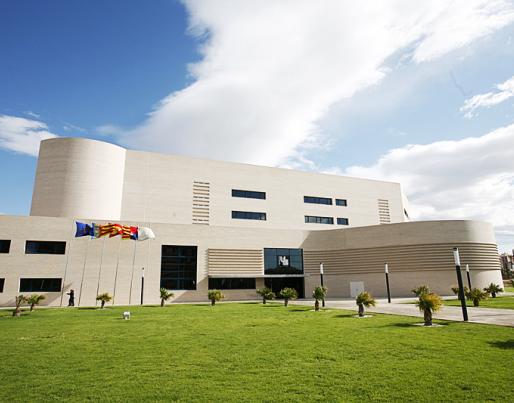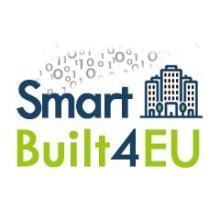The SmartBuilt4EU factsheets in the SRI-UMH project

The SmartBuilt4EU factsheets in the SRI-UMH project
The Energy Performance of Buildings Directive (Directive 2018/844/EU) approved by the European Parliament on April 17, 2018 promotes the implementation of building automation and electronic monitoring of technical building systems, supports e-mobility and introduces the Smart Readiness Indicator (SRI), for assessing the technological readiness of the building and the ability to interact with the occupants and the grid. When it comes to the SRI, the aim is to raise awareness of the benefits of Smart Building technologies and functionalities and make these benefits more tangible for building users, owners, tenants, and smart service providers.
In this context, the “SRI-UMH” project of the Miguel Hernández University of Elche is presented. The Energy Engineering Research Group has opened a new line of research focused on improving the energy efficiency and operation of buildings through the implementation of digitisation strategies for the technical installations of buildings, including air conditioning, hot water production, renewable energy installations, etc. The “SRI-UMH” research project’s main objective was to analyse the current level of digitalisation of public buildings in the province of Alicante based on the SRI methodology proposed by the European Union. Indeed, this methodology has been implemented considering different types of use (administrative, educational, cultural, etc.), with the aim of characterising the existing public buildings in the province. The study was completed with a series of proposals for improving the level of technological readiness of the buildings analysed.
A total of 9 buildings have been analysed, covering different building typologies, including: educational, cultural, office and sports buildings. Then, the study carried out a series of recommendations to improve the level of smart readiness of the buildings.
To display and disseminate the results of the assessment, the University of Elche opted to use the approach introduced by the SmartBuilt4EU project technical factsheets.
Indeed, the SmartBuilt4EU project supports innovators from the smart building value chain through concrete networking and communication actions. In particular, activities in work package 3 seek to support the value of the SRI assessment, by raising awareness among key innovation leaders and operators of the smart building sector about SRI implementations, by providing benchmarking through smart solution packages.
One of the outputs of the definition and analysis of Smart Building solution packages is a set of so-called Smart Building Technical Sheets. These Technical Sheets summarise the solution packages in a ‘handout’ form, providing information about their impact on SRI score in comparison to a conventional configuration and displaying the relative co-benefits and added values. In total 8 Technical Sheets have been prepared, 4 dedicated to residential buildings and 4 to office buildings.
The selection of specific technology and smart functionalities combinations can strongly impact specific areas of the built environment. For this reason, the Smart Building Technical Sheets’ main scope is providing a clear and efficient explanation about the main impacts and add values of a smart technology adoption. Furthermore, the display of the SRI score increase from a conventional technology configuration and the smarter one proposed in the solution packages makes more evident the role that SRI will play in providing information about the added values of building smartness to building users, owners, tenants and smart service providers.
In addition to being used for the dissemination of the SRI-UMH assessment results, the smart building technical sheets have been used as training materials in dedicated national workshops to support the explanation of the SRI role and main objectives.
Ultimately, these dissemination and training activities are expected to have a market push effect by consumers and the construction industry (architects, building owners, facility managers, installers), encouraging the development and implementation of an SRI policy framework at the EU and national level.
References:


